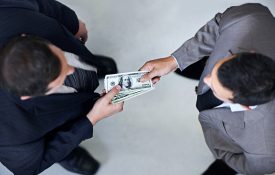-
Why Do People Stay When a Hurricane Comes?
Hurricane Florence is currently battering the Carolina coast. A weakened yet still severe storm, experts expect flooding, high winds and torrential rains in the area, possibly for days. After issuing a mandatory evacuation order, Gov. Roy Cooper of North Carolina warned, “If you wait until conditions get bad, it may be too late to get out safely.” Tens of thousands of Carolinians scrambled to leave. Others, however, stayed put and are weathering the storm. One local fisherman told television reporters: “I was born and raised right here. I’m a local and it takes a little more than a storm to run us out.” He continued, “I’m going to stick it out.
-

New Research From Psychological Science
New research exploring overlap between self- and other-oriented brain responses among altruists, spatial interference from linguistic cues, and brain structure and function in relation to action control.
-

APS Past President Walter Mischel Passes Away
The pioneering scientific expert on children’s self-control was a driving force behind the advancement of integrative science and international collaboration.
-

APS Past President Mahzarin Banaji Among Golden Goose Award Recipients
Banaji and colleagues Anthony Greenwald and Brian Nosek are being honored for their groundbreaking research on implicit bias.
-
Why some people never evacuate during a hurricane, according to a psychologist
The forecast for Hurricane Florence is ominous. Storm experts are projecting the storm will make a direct hit on the North Carolina shore, north of Wilmington, as a Category 3 storm. The National Hurricane Center says storm surge — which is often the deadliest component of a hurricane — could top 6-to-12 feet in some areas. Meanwhile, 15-to-20 inches of rain from the storm may cause flooding, both alongshore and inland. Due to the severity of the forecast, more than 1.4 million people have been told they must evacuate from the shorelines of North and South Carolina, as well as parts of Virginia.
-

People Can Infer Which Politicians Are Corrupt From Their Faces
People can make better-than-chance judgments about whether unfamiliar politicians have been convicted of corruption simply by looking at their portraits.

